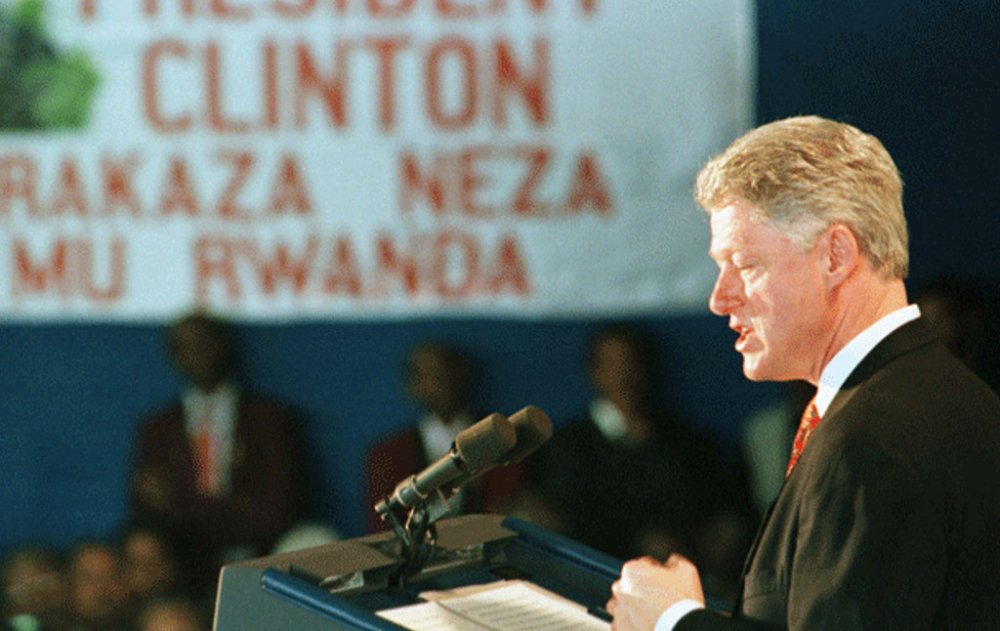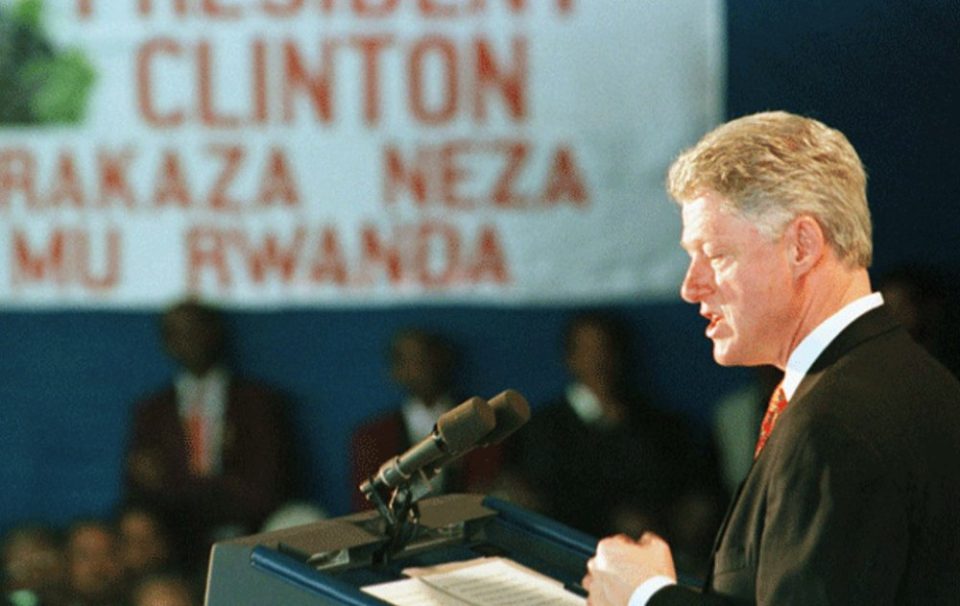Former United States President William Jefferson Clinton, better known as Bill Clinton, is among high-ranking dignitaries scheduled to attend the 30th Commemoration of the 1994 Genocide against the Tutsi in Rwanda on April 7, 2024.
The White House, in a statement on April 3, 2024, confirmed that the 42nd President of the USA will lead a five-member team designated to the East African country by President Joe Biden during the event dubbed ‘Kwibuka 30’.
“President Joseph R. Biden, Jr. today announced the designation of a Presidential Delegation to attend Kwibuka 30, the 30th Commemoration of the 1994 Genocide, on April 7, 2024, in Kigali, Rwanda.”
“The Honorable William Jefferson Clinton, 42nd President of the United States of America, will lead the delegation,” the statement reads in part.
Other members of the Presidential Delegation are Eric Kneedler, United States Ambassador to the Republic of Rwanda, Mary Catherine Phee, Assistant Secretary of State for the Bureau of African Affairs, U.S. Department of State, Casey Redmon, Special Assistant to the President and Senior Director for Legislative Affairs, National Security Council, and Monde Muyangwa, Assistant Administrator of the Bureau for Africa, U.S. Agency for International Development.
Clinton was the US President when the Genocide against the Tutsi happened, having served as Head of State from 1993 to 2001.
He made his first visit to Rwanda – the first of such a visit by a US President to the country – four years after the genocide on March 25, 1998, and apologized to the Rwandan people for the killing of more than a million people during the genocide.
Clinton, while addressing genocide survivors at Kigali International Airport during a brief three-hour visit, said the international community together with nations in Africa bear responsibility for the killings. He said US and other countries did not act ’quickly enough’ after ’a government-led effort to exterminate Rwanda’s Tutsi and moderate Hutus began’.
“The international community, together with nations in Africa, must bear its share of responsibility for this tragedy, as well. We did not act quickly enough after the killing began. We should not have allowed the refugee camps to become safe haven for the killers. We did not immediately call these crimes by their rightful name: genocide. We cannot change the past. But we can and must do everything in our power to help you build a future without fear, and full of hope,” Clinton said.
He called for increased vigilance in the world to prevent such atrocities in the future.
“We owe to those who died and to those who survived who loved them, our every effort to increase our vigilance and strengthen our stand against those who would commit such atrocities in the future here or elsewhere,” he added.
Clinton further made a $2 million contribution to the Genocide Survivors Fund and encouraged other nations to follow suit to help the survivors and their communities find the care they need.
Clinton’s successor, George Bush, also visited Rwanda in February 2008 as part of his five-nation African tour.
Bush affirmed that the US would stand with Rwandans in their country’s rebuilding process after the Genocide against the Tutsi.
“Laura and I have just finished going to a memorial for the – that recognizes the horrors of the genocide that took place here. This is a moving place that can’t help but shake your emotions to your very foundation. It reminds me that we must not let these kind of actions take place; that – and that the people of Rwanda need help to reconcile, to move forward, after a brutal period,” he said after his visit to the Kigali Genocide Memorial.
He added, “I guess the only thing I can finish saying is that, you know, we ask for God’s blessings on those who still hurt, and on those who long for help, and on the kids whose lives had to have been deeply affected by the trauma of the moment. And we thank the museum officials for their generosity and hospitality, and for putting on such an exhibit to remind people that there is evil in the world, and evil must be confronted.”
During the visit, Bush also opened the US Embassy offices in Kacyiru within Kigali City.



